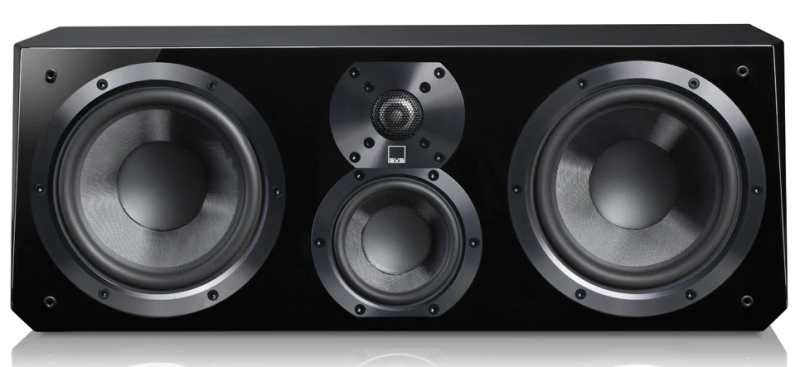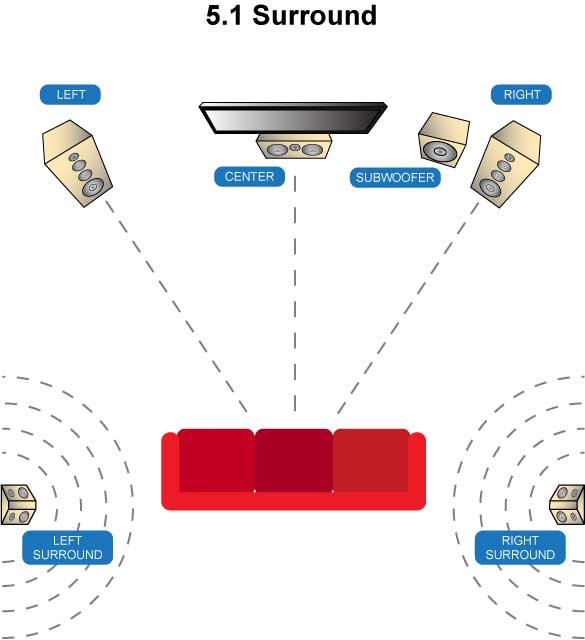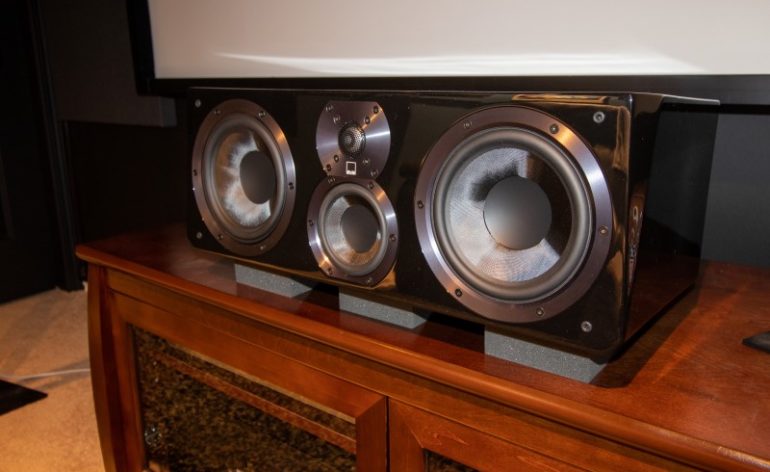Shouldn’t the Voices Only Come from My Center Speaker?
“You NEED a center channel,” says just about everyone on the Internet. “The center speaker is where all the voices come from!”
That’s an alarming statement to many. They are thinking about starting a home theater but don’t have all the money for a full surround system. They THOUGHT they could start with a 2.0 or 2.1 stereo system. But now they are hearing that they need a center or they will lose the voices. So they skipped the subwoofer or skrimped and saved and now they have a 3.0 system with that all-important center speaker. But they’ve noticed something. Voices DON’T always come from the center speaker! Sometimes they come from the left or right speaker…or both..or other speakers! What gives?
Revisiting the Importance of the Center Speaker
We can’t stress enough the unimportance of your center speaker. It is the only speaker in an entire home theater system that can be removed completely without losing its content. That said, having a center speaker is certainly more desirable. The center speaker anchors the voices at or near the image. This is especially important when you have seating that is closer to one front speaker than the other (although there are ways to mitigate that). You can also use the trim levels of the center speaker to increase the volume of (most of) the voices.

Why Are Voices In Other Speakers?
The main concern people have is that they were told that the center speaker does all the dialogue. That’s simply not true. In many modern movies, especially those mixed using object-based audio, the dialogue (as well as all the other sounds) are mixed into the speakers that are physically closest to where the sound originates on the screen. So, if a character is off the left side of the screen when they start talking, their voice might come from the left speaker primarily. As they walk across the screen, their voice will be mixed into the center and then the right speaker if they completely cross. It gives a more realistic sound experience and is one of the primary reasons people love surround sound.
You may be hearing voices in other speakers as well. Some may be by mistake, but often it is because that is where the director envisioned the location of the character. This is especially true in horror or suspense movies where a voice from “behind” you are meant to be shocking, surprising, or disconcerting.
Sometimes It Is About the Mix
Lastly, if a source is in stereo, the voices will NEVER come out of the center speaker…unless you change your upmixing settings. Many people set their AV receivers to output exactly the audio that it receives. So, an Atmos mix would use every available speaker. A 5.1 mix would only use the front three and the side surround speakers (no surround back or overhead speakers). A stereo mix would only use the front left and right speakers.

They use these settings because they were told (usually by faceless people on the Internet) that this was the “best” way. That using direct/pure direct/straight modes gives the most accurate audio experience. That is true, in a sense. It does stay true to the original source. But your AV receiver has powerful upmixing capabilities. This allows you to take any audio mix and make use of all your speakers. Some people don’t like the way it sounds. They then go on the Internet and say no one should use any upmixing. Just because they say it, doesn’t mean it is true. Try it for yourself.
Sometimes It Is About the Source
There are times when there is nothing you can do. If a source encodes all your content into multichannel PCM, for example, you can’t really upmix it to make use of your other speakers. If a show or movie was mixed poorly (or incorrectly) and then uploaded to a streaming service, then there is nothing you can do to put the voices back in the center speaker where they belong. Sometimes, you are just stuck with voices coming from the wrong speaker.
Does This Mean You Didn’t Need a Center Speaker?
In any hobby, it is very hard to justify using the word “need.” If you are a cyclist, you need a bike. The amount you spend on the bike, however, very quickly crosses from “need” to “want.” It is the same for home theater. Did you need a center speaker? Many times the answer is no. But does having a center speaker make your system better, more accurate, and more enjoyable? Probably yes. While you probably didn’t technically need a center speaker, it was only a matter of time before you got one. So enjoy it! And don’t freak out if the voices come from a different speaker. Unless you are watching a horror movie. In which case, that freak-out was intended!


